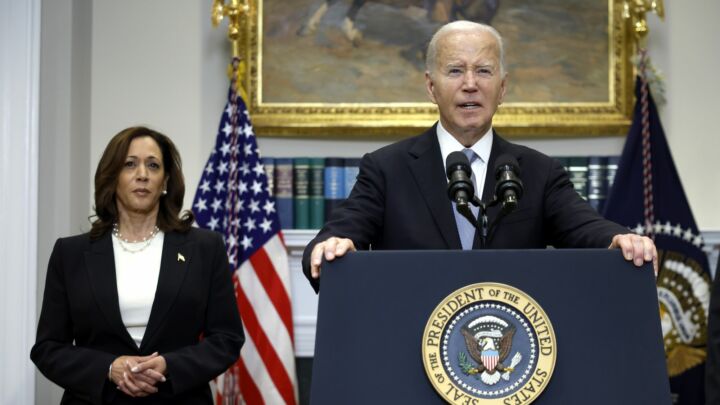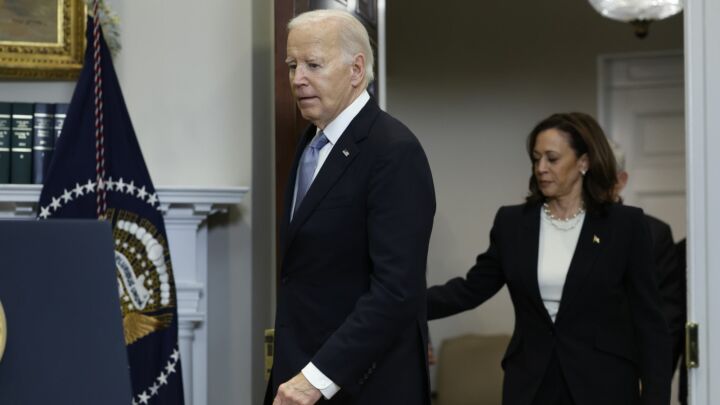The terrible cost of the school shutdowns
Lockdown has pushed absenteeism, suspensions and exclusions to record highs.

Want to read spiked ad-free? Become a spiked supporter.
New government figures show that permanent exclusions and suspensions from English schools hit record highs during the academic year of 2022-23. This provides a further indication of the harm done by the wholesale closure of schools for large parts of the pandemic in 2020 and 2021.
We already know that there are tens of thousands of children who have been repeatedly absent or who have never returned to school after the easing of Covid restrictions in 2021. Indeed, in September 2022, it was reported that 93,000 kids had ‘simply vanished and fallen off school registers’ since the start of the pandemic in early 2020.
Now it’s becoming clear that the school shutdowns have affected the behaviour of many of the children who did return to school. It seems that there’s a large number of pupils who now resent being in the classroom so much that they’re taking it out on their teachers and fellow pupils. This has led to a rise in exclusions and suspensions.
The Department for Education’s latest data, released earlier this month, reveal that permanent exclusions rose from 2,179 for spring 2021-22 to 3,039 for spring 2022-23 – an increase of just under 40 per cent. During the same period, suspensions also increased by 31 per cent, from around 200,000 to over 260,000. As a spokesman for the DfE explained to the Telegraph, ‘The most common reason for suspensions and permanent exclusions was persistent disruptive behaviour’.
These are deeply worrying figures. School leaders don’t take the decision to suspend, let alone expel, a pupil lightly. Indeed, permanent exclusions are seen as a last resort for only the very worst-behaved pupils. Headteachers have to demonstrate that they have exhausted all other options first. For so many more pupils to be excluded in 2022-23 means that behaviour in schools must have deteriorated to an alarming extent.
The headline figures don’t even tell the whole story. For every suspension or expulsion, there will be many more children subject to lesser punishments, such as ‘internal exclusions’, where they remain in school but are withdrawn from their usual timetable and peer groups. The overall picture of pupil misbehaviour in the post-Covid era is therefore bound to be worse than even that suggested by the official data.
The rapid rise in rates of exclusion and suspension suggests that the importance of going to school has been devalued for a lot of young people. In the past, the vast majority of children knew that going to school was just what you did. It was as routine as eating and sleeping. It was the space in which they formed their main friendships, developed their interests and matured into young adults.
The lockdowns broke that school-going routine. They diminished the importance of being at school. They sent a message to young people that even adults did not value school. Now it seems that thousands of young people are pushing back against the whole idea of a school-based education.
Tackling this problem, and getting disenfranchised, disenchanted kids back through the school gates again, is not going to be easy. Especially given that the education on offer has become less and less inspiring in recent years.
Increasing numbers of schools are content to serve up a thin gruel of dull, formulaic and unimaginative lessons, thanks to the growing use of faddish cognitive-science practices which promote rote learning over deep engagement. In addition, teachers are increasingly encouraged to ‘teach to the test’, due to schools’ obsessive focus on exam performance. With so many children alienated from school, educators must start offering something more inspiring than the equivalent of low-level business seminars.
The ultimate responsibility for young people’s turn away from school lies with our governing class. Politicians’ decision to shut schools during the pandemic was an act of educational vandalism. The latest school exclusion data is yet another reminder of their folly – and their betrayal of young people.
Gareth Sturdy is a physics adviser and former teacher.
Pictures by: Getty.
To enquire about republishing spiked’s content, a right to reply or to request a correction, please contact the managing editor, Viv Regan.








Comments
Want to join the conversation?
Only spiked supporters and patrons, who donate regularly to us, can comment on our articles.